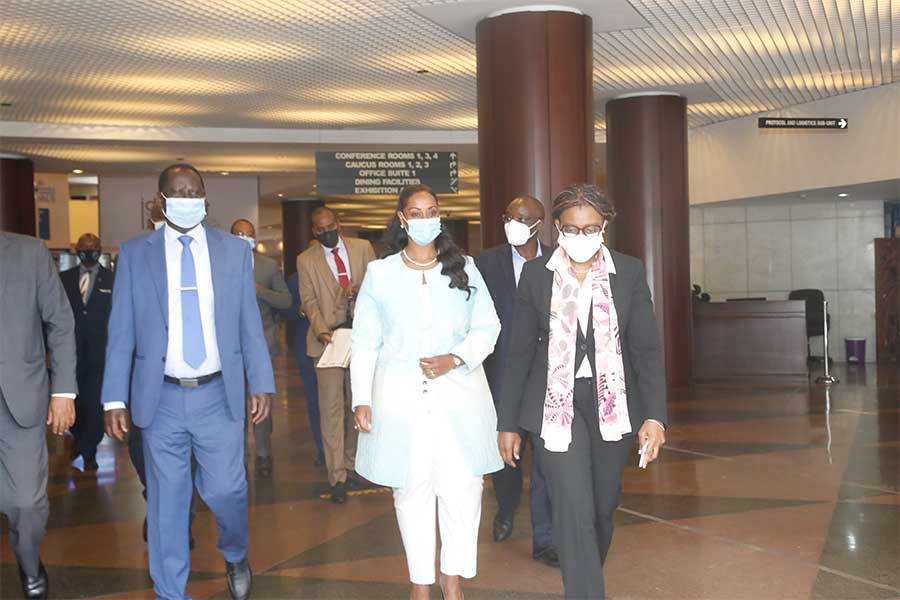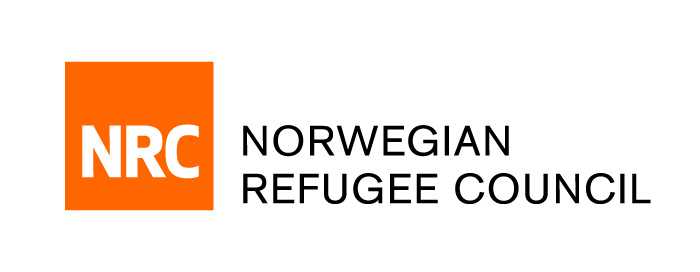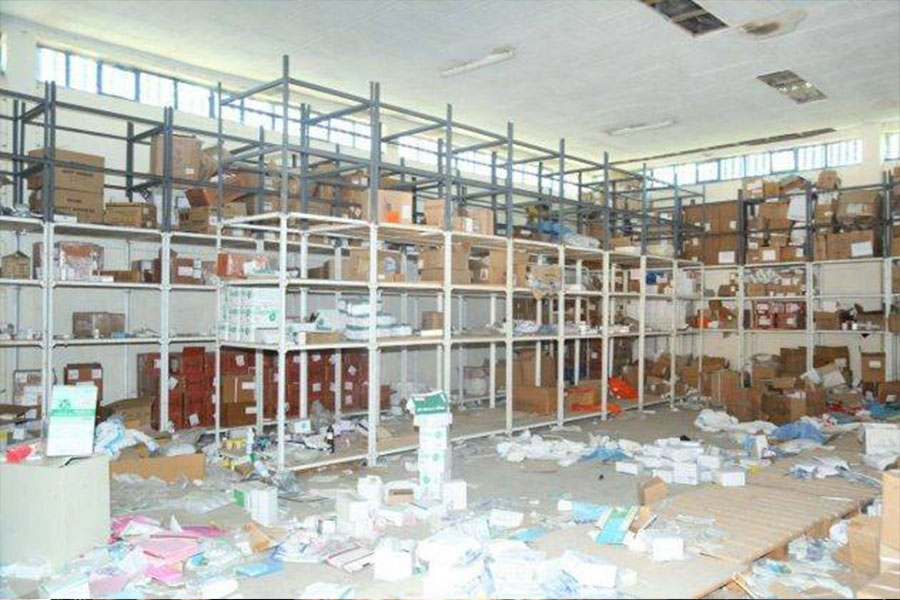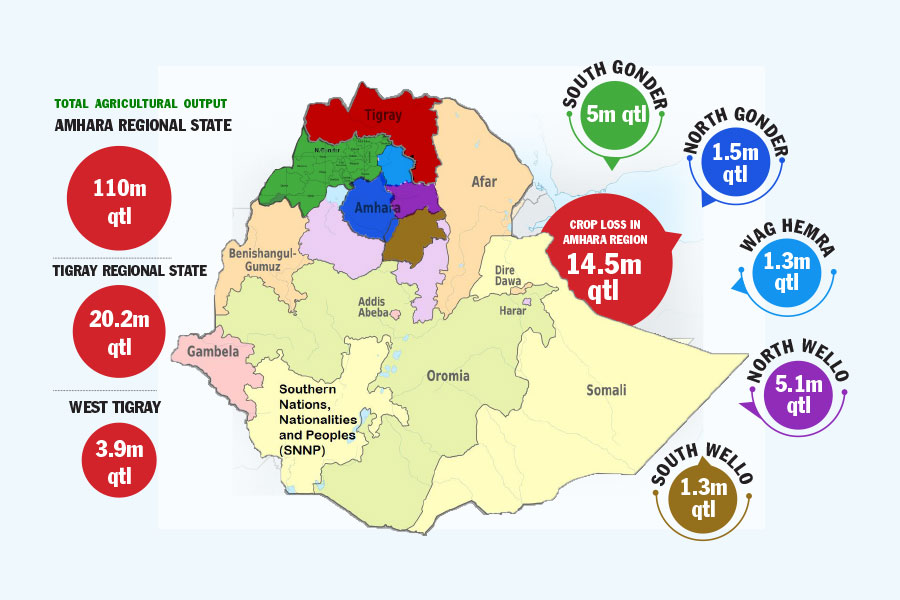
Radar | Jul 03,2021
The town of Debre Brehan will get its first vehicle-assembly plant, under construction by Phibela Industrial Plc, at a projected cost of 300 million Br for civil works and construction of the plant.
A subsidiary of Belayneh Kinde (BK) Group, Phibela Industrial is erecting the plant in Debre Brehan Industrial Park, located 130Km northeast of Addis Abeba. The assembly plant consists of six factory sheds on 26,000Sqm of land at the two-year-old Industrial Park and is undertaken by Belayneh Kinde General Contractor.
Established by a man who had once served as an officer in the military, the BK Group comprises Belayneh Kinde Corporation, Phibela Industrial Plc and the Belayneh Kinde Foundation. The Group runs a portfolio of 22 companies engaged in everything from export to import and construction to manufacturing, employing close to 3,000 people. The Group acquired Ethiopia Hotel in Addis Abeba from the privatisation agency for 94 million Br in 2010.
"Our businesses are as inter-functional as possible," Deksios Bezabeh, Belayneh Kinde Corporation's general manager, told Fortune. "Our transport unit provides dry and fuel cargo services, deploying vehicles assembled by its sister company."
The second plant under the BK Group, the production line in Debre Brehan will be a site for the assembly of heavy-duty trucks, buses, automobiles and tractors. The Belayneh Kinde Metal Engineering Company near Gelan, Oromia Regional State, 30Km away from Addis Abeba, was the conglomerate's first assembly plant. Completed in 2019 with an initial investment of 900 million Br, this 23,000Sqm plant can assemble 720 vehicles a year, mostly buses and heavy trucks. About 160 trucks also assembled at the plant in Gelan are transporting semi-processed oil for Phibela Edible Oil Factory.
Phibela was established in 2013 by two shareholders, Adancech Kefale and Belayneh Kinde, with a capital outlay of 2.4 million Br. It is involved in an edible oil refinery, bottling, soap manufacturing, packaging, margarine production and sesame processing in Bure city of Amhara Regional State.
Despite its phenomenal expansion in over a decade, the BK Group is besieged by shortages in foreign exchange to import machinery and the global impact of the Novel Coronavirus outbreak (COVID-19). Deksios attributes lack of progress in the construction work at the new assembly plant in Debre Brehan to these challenges.
"The closure of ports and manufacturing companies around the world has caused losses for us," he told Fortune.
The excise tax law passed last year could potentially be a launchpad for the nascent vehicle-assembly industry in the country, as the import of used cars has fallen significantly recently. Only a fifth of the 19,000 cars imported during the first half of this fiscal year were used vehicles.
The gap created serves as an opportunity for local assemblers, and the government should encourage them to take advantage, according to Demissew Shewangzaw, a tax law expert.
"The government should allocate more foreign exchange to assemblers than to importers," he told Fortune. "The central bank has already proclaimed suppliers credit in 2017, which is a good step but needs to be reconsidered in terms of interest rates to benefit more local manufacturers."
BK Group eyes a potential partnership deal with Japan's Toyota Motor Corporation, although Deksios disclosed to Fortune that they are in the process of selecting a partner.
EDITOR'S NOTE: THIS STORY HAS BEEN UPDATED ON MARCH 6, 2021
PUBLISHED ON
Apr 03,2021 [ VOL
22 , NO
1092]

Radar | Jul 03,2021

Radar | Sep 10,2021

Fortune News | Jun 10,2021

Fortune News | Dec 19,2021

Fortune News | Nov 06,2021

Dec 22 , 2024 . By TIZITA SHEWAFERAW
Charged with transforming colossal state-owned enterprises into modern and competitiv...

Aug 18 , 2024 . By AKSAH ITALO
Although predictable Yonas Zerihun's job in the ride-hailing service is not immune to...

Jul 28 , 2024 . By TIZITA SHEWAFERAW
Unhabitual, perhaps too many, Samuel Gebreyohannes, 38, used to occasionally enjoy a couple of beers at breakfast. However, he recently swit...

Jul 13 , 2024 . By AKSAH ITALO
Investors who rely on tractors, trucks, and field vehicles for commuting, transporting commodities, and f...

Jul 5 , 2025
Six years ago, Ethiopia was the darling of international liberal commentators. A year...

Jun 28 , 2025
Meseret Damtie, the assertive auditor general, has never been shy about naming names...

Jun 21 , 2025
A well-worn adage says, “Budget is not destiny, but it is direction.” Examining t...

Jun 14 , 2025
Yet again, the Horn of Africa is bracing for trouble. A region already frayed by wars...